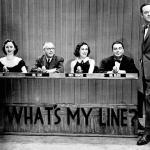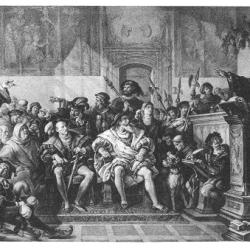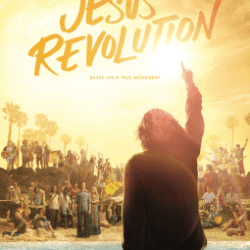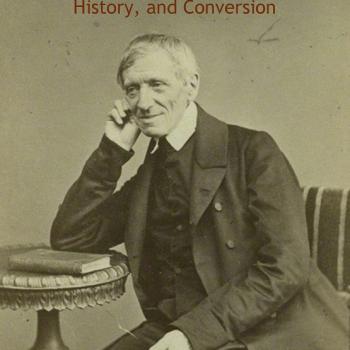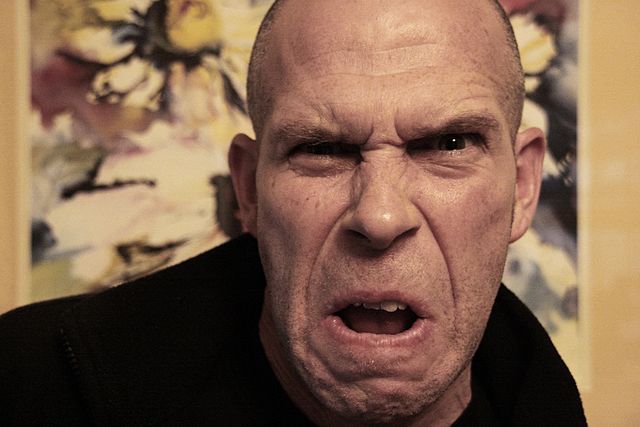
How is it a bad thing to give testimony of why one became a Catholic?
***
The following (in my opinion, rather astonishing) exchange took place in comments on Justin Nickelsen‘s excellent blog, Ressourcement: Restoration in Catholic Theology, with a Catholic named John Lowell. His words will be in blue.
*****
Sorry, Justin, but I just don’t share your enthusiasm for Scott Hahn, almost certainly because of the unfortunate publicity surrounding his conversion. One might have expected a greater humility from him at the outset, a certain willingness to eschew the limelight, to experience a kind of maturation before advertising himself and having accepted the advertising of others as a kind of special case. One is reminded of the justifiable reluctance of many monks in Merton’s order to find comfort with Merton’s notoriety after his conversion. With Hahn, you’d have thought that it was Merton, or perhaps even Newman, all over again what with the books, the television exposure and the like. There was something almost akin to the process of commercialization involved in Hahn’s case.
I, too, am a convert from Protestantism, admitted to the sacraments in Holy Week, 1987. Had I any special claim to make at the time to prominence, a clerical past, an advanced degree, and I didn’t, I think I would have suppressed it. Mine was the kind of conversion born of questioning, theological study and prayer and it certainly didn’t justify my being accorded celebrity status. I just felt fortunate in having been brought to the truth. It never would have occurred to me that I ought to write a book about it or to appear on television. But it did to Scott Hahn and I think that says something important about him.
No, I’m afraid we don’t see eye-to-eye here. I’ve just never even been curious about theologians whose persona I couldn’t respect.
***
You know I most assuredly don’t think that it was money that Hahn sought or perhaps even the notoriety. It’s the self-importance, the egoism, to which I object. On what basis one might ask does he consider his experience so unique that it needs to go up in lights? You and I are both converts, yet neither of us has considered the experience we had so particularly noteworthy that an autobiography was justified. After all it was God that worked the conversions, not John Lowell or Justin Nickelsen, and the God that worked them is lowly, meek and obscure in this world. He neither needs nor asks for credit for these achievements. To the contrary, he says “tell no one about this”. Doesn’t He beckon us to follow Him, to be made cruciform? I think he does. I really don’t see Scott Hahn as having sought the form Christ in the way he came on the scene. The style was all too redolent of the Evangelicalism from which he came. Maybe if someone had coaxed the story of his conversion out of him twenty five years after the fact, I’d be more comfortable, but that’s not how it happened. I’m afraid that, for me at least, his celebrity status has taken the blush off his rose. Clearly you [Justin] feel otherwise, and I’m sure, for very valid reasons.
***
It might be instructive to reflect on how it was that Hahn made known his piety at the time of the controversy to which you refer. Was it Hahn or was it someone else that drew your attention to his restraint and session with the Lord? Potentially, at least, there may be something of a correspondence in how you became aware of these events and the character of the complaint I’d made about him somewhat earlier. I’m sure you understand what I’m getting at here.
***
Not to be argumentative, for the least of reasons because I don’t consider Hahn worthy of more than passing notice, I would submit that in your enthusiasm, both of you miss a very important element in your treatment of this question. In both accounts you offer of the history of his rise to prominence, Hahn seems utterly passive, almost paralyzed. By one we have St. Joseph Communications, not unlike the God of John Calvin, irresistibly beckoning him forward while he is in graduate school and submitting him to a kind of recruitment. And Hahn, of course, just can’t say no. Or by the other, his being dragged kicking and screaming into a radio interview an eternity of one year after his conversion to give an account of it. I mean really, here we have in yours an almost motherly devotion, and one almost as selective, eh?
The simple truth is that Hahn never exercised even the most minimal resistance to his being placed in the limelight. I mean here is a very young man, with a paucity of exposure to the social reality that is the Catholic Church beginning his Catholic life from the top, telling others quite remarkably how to do it. The fact that he appropriately might have considered a more humble course never seems to have occurred to him. And there’s likely a very good reason for that: the presence of a rather well developed sense of himself. Sorry, all the rationalizing in the world will never make that smell any better. To dignify it by introducing a kind of ends-justifies-mean argumentation misses the point altogether.
***
Mr. Lowell’s comments are the height of uncharity. Is it his contention that conversion stories themselves are a bad thing, which shouldn’t be done at all, lest the writers fall into pride and inflated self-importance? He didn’t write one, so no one else should, either? This goes too far.
I wrote my own conversion story to give glory to God, not myself. I was trying to share something which was immensely exciting: the truths of the Catholic faith and how I came to believe in them by God’s grace.
How is that a bad thing? How does that prove pride? Since a waiting-period seems to be extremely important to Mr. Lowell, I would note that my story appeared two years after I converted, in This Rock. It was then printed in Surprised by Truth, three years after my conversion. By the time I went online, I had been a Catholic for over five years. I began my website a year after that.
This isn’t running out to be known and appreciated, for some motivation of self-interest and spiritual pride. Apologetics is other-directed, not me-directed. Granted, some who do apologetics do not understand this properly, but that doesn’t include Scott Hahn, who is one of the most gracious, friendly guys I have ever met.
I happened to meet him for the first time in 1991 at a talk; as it turned out, the day before I was received into the Church. I’ll never forget his expression when my friend told him I was to be received. His eyes lit up and he was so excited to hear about it. This had nothing to do with him. My conversion was not because of his influence, anyway (it was much more Cardinal Newman and the contraception issue).
He was simply overjoyed that someone decided to become a Catholic. And that is why we converts share our story, so that others can experience the same joy of spiritual discovery.
Surprised by Truth has helped many to convert, for the simple reason that it has sold over 200,000 copies. Are we to believe that none of us eleven contributors to that book should have participated, and that the fruit has been bad, not good? Surely, this is preposterous. Fr. John A. Hardon (who received me into the Church) used to say quite a bit that when we write a book or an article, thousands of people can read it, and thus, our potential for reaching others with the Catholic message or the gospel itself is magnified many times over. Is this not obvious?
I do agree, however, with Mr. Lowell, to the extent that if we present our conversion story over and over, we enter into possible danger of excessive self-importance. I think a written account and a few lectures are sufficient. If the lectures are taped and distributed, fine, but I think people ought to move onto other things besides telling their own story over and over.
That’s just a bit of “Armstrongology.” I don’t claim it as some ethical duty. Just something to think about and a prudential matter to ponder . . .
***
Hello David,
It would seem that I’ve touched off a sense of personal guilt in your case that it was never my intention to reach, believe me. The self-justification you offer is utterly unnecessary. My remarks were aimed at television star, Hahn, not you.
***
[W]ith me first impressions are rather lasting and that reading anything by Hahn, recent or more dated, could never be accompanied by a genuine sense of pleasure here.
***
Well, we know this much certainly, that you felt it necessary to explain yourself above rather thoroughly when no explanation had been solicited of you particularly.
You don’t understand my reasoning process there. Let me explain if I may. This is not about me; it is about your fallacious, ungrounded claims regarding Scott Hahn, and by implication all who feel that writing their conversion story might be helpful to others. You act as if this were some self-evident indication of pridefulness and excessive self-importance. I used myself as an example according to the following reasoning:
“You claim that conversion stories are proof of pride and seem to overlook their helpfulness and usefulness for those who read them. I am also among those in this category of converts to the Catholic Church who have written their conversion story [my own has been read by over 200,000 people], and I can explain my own motivation (and in that sense, my story and its motivation are analogous to Scott’s, though not, of course, in the sense of influence and importance). Perhaps in considering that (assuming that you grant my sincerity), you will reconsider your harsh judgments of Scott Hahn.”
In other words, since Scott isn’t here to defend himself, I provided a firsthand report of what motivated me when I wrote mine. This is important because it seems that you have not considered the many possible legitimate reasons for writing conversion stories, and have chosen to assume a cynical stance without sufficient reason to do so. Cynicism is not a biblical attitude. We are to believe the best of others, not the worst.
I also used my own conversion as a tie-in to Scott Hahn by recounting the story of his reaction, as a way to show the true nature of the person. Surely anyone who knows the man or who has met him at all, and who has any discernment about human character would quickly see the falsity of your claims.
The rest of my post was an apologia for conversion stories in general (e.g.: “Fr. John A. Hardon . . . used to say quite a bit that when we write a book or an article, thousands of people can read it, and thus, our potential for reaching others with the Catholic message or the gospel itself is magnified many times over.”).
Other “arguments” of yours that I didn’t address before are equally groundless. You write:
It would never occur to me that given 2000 years of Church history my experience would be quite so unique, so vital that the teeming masses just couldn’t manage without my reporting on it, as though God had no other recourse but to me, a kind of modern Jeremiah as it were.
How does this follow? This is unbelievable. You act as if the mere act of giving testimony to what God has done in one’s life is some inexcusable act of hubris and the very height of vanity. Good grief; that would make all the apostles themselves rank hypocrites, for this is virtually all they did in the early years of Christianity. This is what turned the world upside down! For the life of me I cannot understand this (except as some sort of personal manifestation of feelings of yours which have in some fashion been shaped so as to create a huge animus against conversion stories).
You go on to assert:
Now in Hahn’s case, given his background in Evangelicalism where testimonies are all the rage, and the stadium rally featuring the football coach and the chief of police are de regeur, the whole psychology is more supportive of this crude sort of exhibitionism. But, God be praised, the Catholic social milieu is not that of Evangelicalism, historically we have rejected such theatrics. Ignoring that history, both Hahn and his enablers felt they had a better idea and it is precisely there that one uncovers at least some of the self-importance.
Wow. This is a classic example of one recurring manifestation “anti-apologetics” that I objected to above: the charge of importing distinctively Protestant mentalities and/or shortcomings into Catholicism when one converts.
Catholics are somehow inexorably opposed to stadium rallies when the late great John Paul the Great would give mass to a million people in a field and hold World Youth Days, etc.? Even Billy Graham could not hope to match that.
As for testimonies themselves, certainly you cannot be unaware of the long history of such literature in Catholic ranks. St. Augustine’s conversion story is the very prototype of the genre. Cardinal Newman’s Apologia pro vita sua electrified even anti-Catholic England, causing them to rally to his personal defense, which had immense implications for the future of Catholicism there. Conversion literature has flourished ever since: Ronald Knox, Dorothy Day, Thomas Merton, G. K. Chesterton, Evelyn Waugh — on and on and on.
Scott Hahn is just the tip of the iceberg. It is nothing new whatsoever. If people show an interest in a conversion story, and are known to convert in part because of it, then it makes perfect sense to distribute it more widely. Heaven knows we need more Catholics. If this is the way to produce more, then praise God. But none of that proves that Scott is filled with pride and vanity.
Collections of conversion stories have always been popular in Catholic ranks at least from the time of Newman onwards. Catholic apologist Frank Sheed’s Sheed & Ward publishing company put out many such collections in the 40s and 50s, and the popularity of Surprised by Truth and other similar works recently attest to their continuing success.
Catholics like conversion stories because it gives them confidence and inspiration, to see how God is working in the lives of folks who have been led to the Catholic Church by the Holy Spirit and whatever human agents He chooses to use to aid the process. Other possible converts see people working through the same issues that trouble them. People like stories in the first place, so the mixing of story, testimony, and theology, is an alluring read for many Catholics, and those considering conversion themselves. Yet you disparage this, and act as if it is 1) wrong, 2) intrinsically indicative of pride, and 3) somehow exclusively Protestant in character, as if Catholics cannot give joyful report of God’s action in their lives.
An additional thought: One very curious aspect of Hahn’s public presentation is his rather unfortunate tendency to describe himself as a “Catholic Christian”. I’ve heard him describe himself in this way several times. The ecclesiology presupposed here is awful, of course, but it further betrays a certain failure of integration into Catholic life that Hahn would have been better advised to have prioritized initially. Where was St. Joseph Communications when it came to serving him in that way might I ask?
What is awful here is not the ecclesiology, but your logic and presumptuousness. All “Catholic Christian” denotes is “a Christian who is a Catholic.” One uses such language precisely as one way to build bridges between Catholics and our Protestant brethren, particularly of the anti-Catholic variety.
The usual, standard counter-example applicable here is the non-denominational Protestant meeting a Catholic and saying “I am a Christian.” If the Cathoilic says, “I’m a Catholic,” what the Protestant (often) hears is “oh, he is setting ‘Catholic’ up in opposition to ‘Christian,'” Saying “Catholic Christian” cuts through that. There is nothing wrong with this at all, as it is a way to better communicate with non-Catholic Christians. Or are you claiming that Catholics are the only Christians? If not, then there are Orthodox Christians, Catholic Christians, and Protestant Christians. The category of Christian is larger than just Catholic.
In any event, this is no indication whatsoever of an awful ecclesiology. Such a charge is beyond ludicrous.
And here you mention your having written a conversion story again and not without sarcasm.
Illustrate the absurd by being absurd, as Rush Limbaugh says. How else can a rational person respond to the accusation that he mentioned his conversion story out of guilt?! When I feel that I have encountered literal nonsense — especially if it is regarding myself (since I am the world’s biggest expert on my own internal dispositions) — then I will often respond with such humor. It shows how silly the original charge is. It’s a form of argument.
In this case, there was not a shred of truth in your claim. Far from being either “guilty” or proud (in the worst sense of the word) about my own conversion story; to the contrary, I am quite humbled that God has used the story of this poor sinner to accomplish anything at all. I feel that way about any of my writing that has helped people (according to their report). All glory to God. That is my motivation in writing my story and doing apologetics, and it is Scott Hahn’s, too.
One gets the unmistakable impression that you’ve identified in some way with Hahn in the remarks I’ve made about him.
Insofar as he is a fellow convert, apologist (along with his academic work), and one who has shared his story, and who has been unfairly, ridiculously accused by several different critics (and circles), I can relate quite a bit, yes. It’s only natural, isn’t it? If you lambaste the writing of a conversion story and that is something I have also done, then one would expect that I (particularly because I always love a challenge) might set forth a defense of conversion stories, which is exactly what I did.
None of your psychoanalysis and psychobabble about other people’s supposed ill motivations and poor character holds any weight whatever. Certainly you have better things to do than run people down in public, when you clearly have no compelling proof or even plausible argument for your contentions?
Can it be that I’m all that important to you?
This is no more about you, personally, than it is about me personally. But it is about Scott Hahn personally, because he is the target, being attacked without any justification or reason. I don’t know you from Adam. I am defending a principle here, and a good thing: the importance of sharing conversion stories; and I’m defending a friend (one for whom I have great admiration) and fellow apologist against groundless charges.
Scott may feel uncomfortable defending himself (and it is usually futile to do so, anyway, as I well know from my own experience dealing with these sorts of attacks, so I understand that), but that doesn’t mean that others can’t or shouldn’t defend him. As it says in the Bible, “when one suffers in the Body, all suffer.” Few things bother me more than false accusations, and I will always oppose them when I feel they are taking place.
Well, Dave, what doubt can there now be that I’ve left an indelible impression on you. You’ve gotten yourself engaged in a thirty paragraph contretemps over John Lowell’s opinion of Scott Hahn. Remarkable. And here I’d imagined that I never mattered that much to anyone but my cat. Sorry, but I won’t be able to return the compliment. I don’t have thirty paragraphs of importance or even two to invest in you.
That’s what one gets for trying to apply reason to a subject. I shan’t lose a moment’s sleep over Mr. Lowell’s relentlessly cynical opinions or non-interaction with me, I can assure all here.
But it will serve as an excellent example of irrational opposition to conversion stories on my blog. For that I am grateful.
***
(originally 3-3-06)
Photo credit: Photograph by Jessica Flavin (2-6-08) [Wikimedia Commons / Creative Commons Attribution 2.0 Generic license]
***


